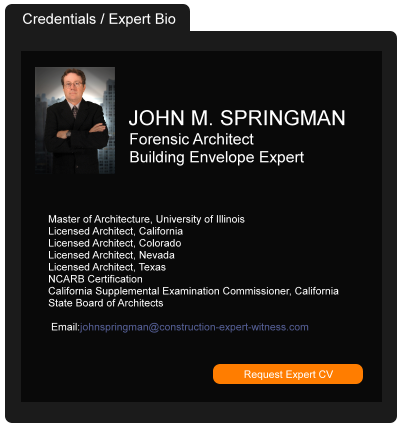California Plant Would Convert Wood Waste Into Hydrogen Fuel
January 10, 2022 —
James Leggate - Engineering News-RecordA climate-focused tech company announced plans to open a $100-million plant outside Bakersfield, Calif., to convert wood waste into hydrogen fuel to prevent the material from emitting greenhouse gases. There has been no construction contract award, to date.
Reprinted courtesy of
James Leggate, Engineering News-Record
Mr. Leggate may be contacted at leggatej@enr.com
Read the full story... Read the court decisionRead the full story...Reprinted courtesy of
Harmon Towers Demolition Still Uncertain
January 23, 2013 —
CDJ STAFFIt would be a "gift" to MGM Resorts if they were able to tear down the Harmon Tower, according to an article in the New York Times, as analysts are cited that a hotel would "struggle during this economic downturn." Further, William Robinson, a professor of economics at the University of Nevada, Las Vegas, noted that "MGM has tried to cut back on the whole project," adding that "if you are a conspiracy theorist, you thin they are just looking for a way to get out of it." Professor Robinson thinks they would be unlikely to rebuild if allowed to tear down the building.
MGM Resorts has a different take on the matter. Alan M. Feldman, MGM's senior vice president for public affairs, told the New York Times that MGM "had a contract with Perini that we would pay them to give us a certain kind of building type — in this case a luxury hotel." Mr. Feldman contends that Perini had not "kept up their part of the bargain." Perini has stated that the fault was due to the designers and did not comment to the Times.
The claims of design and construction defects have left the building unfinished, with only twenty-six of the planned forty-nine floors constructed. Perini contends the building can still be repaired. MGM that its remediation plan is "to take the building down."
Read the court decisionRead the full story...Reprinted courtesy of
Update: Lawyers Can Be Bound to Confidentiality Provision in Settlement Agreement
January 13, 2020 —
Danielle Ward, Esq. - Balestreri Potocki & HolmesIn July 2019, the California Supreme Court ruled that an attorney’s signature under the often-used phrase “approved as to form and content” does not preclude a finding that the attorney could be bound to the terms of a settlement agreement. (Monster Energy Co. v. Schechter (2019) 7 Cal.5th 781.) This decision marks a reversal of the Fourth District Court of Appeal’s 2018 ruling that approval of a contract is not tantamount to an agreement to be bound by that contract.
The underlying action stemmed out of a wrongful death suit by Wendy Crossland and Richard Fournier, parents of the decedent, against Monster Energy Company. The parties negotiated a settlement, a critical of element of which was a confidentiality provision aimed at keeping the the settlement secret.
The confidentiality provision prohibited plaintiffs and their counsel of record from disclosing both the existence of the settlement, or the terms thereof, to any person, entity, or publication, including the legal website Lawyers & Settlements. The attorneys signed the agreement under the phrase “approved as to form and content.”
Shortly after the settlement agreement was executed, the Plaintiffs’ attorney Bruce Schechter disclosed his clients’ settlement with Monster in an interview with Lawyers & Settlements. Monster filed suit against Mr. Schechter for breach of contract, among other causes of action. Mr. Schechter challenged the lawsuit with a SLAPP motion, essentially arguing that the lawsuit was meritless and merely an attempt to thwart freedom of speech.
The trial court denied Mr. Schechter’s motion as to the breach of contract cause of action finding that the settlement clearly contemplated that the attorneys were subjected to the terms of the agreement, and Schechter’s claim that he was not a party because he merely approved as to form and content was “beyond reason.”
The Fourth District Court of Appeal reversed, concluding that Mr. Schechter was not a party to the agreement by virtue of his signature approving the form and content, and the Plaintiffs had no authority to bind their attorney to the terms of the agreement. The Court of Appeal found that by affixing his signature to the agreement Mr. Schechter was merely manifesting his “professional thumbs up” in line with legal industry’s customary understanding.
In its reversal, the California Supreme Court did not disturb the legal community’s understanding of the phrase “approved as to form and content.” Rather, the Court concluded that an attorney’s signature under that often-used phrase does not preclude as a matter of law that the attorney intended to be bound by the agreement. The entire agreement, including the substantive provisions, need to be examined to determine the attorney’s intent in affixing his/her signature to the agreement.
Turning to the Crossland/Fournier Monster settlement agreement, the Court was unpersuaded by Mr. Schechter’s argument that he was not bound to the agreement because counsel was not included in the definition of “party”. The Court stated that it’s the substance of the agreement that determines whether counsel is a party to the contract, as opposed to a party to the lawsuit.
The Court was persuaded, in part, by the important role that confidentiality plays in brokering settlements. It noted that public disclosure of private settlements would serve to “chill” parties’ ability to resolve matters short of trial, and there was little doubt that confidentiality was an important term of the Crossland/Fournier Monster settlement. In concluding that Monster had met its burden to defeat an anti-SLAPP motion, the Court pointed to the numerous references to counsel in the substantive provisions of the agreement which a trier of fact could conclude bound Mr. Schechter to the confidentiality terms.
Danielle Ward has concentrated her law practice on defending developer, general contractor, and subcontractor clients in a variety of construction matters. She has been an attorney with Balestreri Potocki & Holmes since 2010 and can be reached at dward@bph-law.com.
Read the court decisionRead the full story...Reprinted courtesy of
Assert a Party’s Noncompliance of Conditions Precedent with Particularity
July 26, 2017 —
David Adelstein - Florida Construction Legal UpdatesConstruction contracts oftentimes and should contain conditions precedent to payment. Conditions precedent apply to both progress payments and final payment. The conditions precedent operate such that payment is NOT due until the conditions are satisfied. The satisfaction of the conditions precedent triggers the payor’s obligation to pay.
If a dispute arises due to the payee’s noncompliance with conditions precedent to payment, the noncompliance should be asserted with particularity in the answer and affirmative defenses. For example, if a subcontractor was required to provide lien waivers and releases as a condition precedent to payment, then this should be asserted with particularity as an affirmative defense. If the contractor’s receipt of payment from the owner was a condition precedent to payment to the subcontractor (pay-when-paid), then this should be asserted with particularity as an affirmative defense. Any noncompliance with a condition precedent should be identified as an affirmative defense.
Read the court decisionRead the full story...Reprinted courtesy of
David Adelstein, Florida Construction Legal UpdatesMr. Adelstein may be contacted at
Dadelstein@gmail.com
Construction Termination Part 2: How to Handle Construction Administration When the Contractor Is Getting Fired
August 01, 2023 —
Melissa Dewey Brumback - Construction Law in North CarolinaIf you’ve been working as a design professional for any length of time, you know that you must be a chameleon on the construction project. You need to “step into the skin” of both the Owner and the Contractor to determine who is at fault, and who should pay.
You are usually the Initial Decision Maker (IDM), and so you have a duty under the AIA documents to act fairly and impartially in making those decisions. See AIA B101§3.6.2.4.
Even if you are not under an AIA contract, you still have that duty if you are the IDM or handling construction administration for the project. More often than not, however, it will be the owner asking you to support its termination of the contractor “for cause.”
Should you do so?
Read the court decisionRead the full story...Reprinted courtesy of
Melissa Dewey Brumback, Ragsdale LiggettMs. Brumback may be contacted at
mbrumback@rl-law.com
Express Warranty Trumping Spearin’s Implied Warranty
March 06, 2022 —
David Adelstein - Florida Construction Legal UpdatesBe mindful of that express warranty provision in your contract. It could result in an outcome that you did not consider or factor when submitting your proposal or agreeing to your contract amount.
An express warranty could have the effect of eviscerating the argument that you performed your scope of work pursuant to the plans and specifications. In other words, the applicability of the Spearin doctrine could be rendered moot based on express warranty language in your contract that is fully within your control because you do not have to agree to that language.
Under the Spearin doctrine:
[W]hen a ‘contractor is bound to build according to plans and specifications prepared by the owner, the contractor will not be responsible for the consequences of defects in the plans and specification.’ Spearin and its progeny set forth a default rule of fundamental fairness that when a general contractor requires a subcontractor to follow certain plans and specifications, the general contractor impliedly warrants that those plans and specifications are ‘free from design defects.’ Put simply, Spearin protects subcontractors from liability for simply following the general contractor’s direction and requirements.
However, the implied warranty set forth in Spearin and its progeny may be overcome by express agreement. Where a general contractor and subcontractor expressly agree to allocate the risk of a defective product to the subcontractor, that express agreement must prevail over Spearin’s implied warranty.
Lighting Retrofit International, LLC v. Consellation NewEnergy, Inc., 2022 WL 541156 (D. Md. 2022) (internal citations omitted).
Read the court decisionRead the full story...Reprinted courtesy of
David Adelstein, Kirwin Norris, P.A.Mr. Adelstein may be contacted at
dma@kirwinnorris.com
Congratulations Devin Brunson on His Promotion to Partner!
April 26, 2021 —
Dolores Montoya - Bremer Whyte Brown & O'Meara LLPBremer Whyte Brown & O’Meara, LLP is very proud to announce Devin Brunson has been promoted to the position of partner with the firm!
Mr. Brunson came to BWB&O from another civil litigation firm and helped start the Denver, Colorado office along with partners Lucian Greco, John Toohey and Peter Brown. He has taken on a significant leadership role within the firm over the past several years and has been integral in growing the office to its current footprint.
He is licensed to practice law in Colorado, District of Colorado, and in the U.S. District Court. His practice is focused in the areas of civil and business litigation, construction litigation, and employment law. Mr. Brunson has a diverse practice background that includes complex civil litigation and intellectual property disputes and has had the privilege of representing business owners, contractors, corporate executives, and professional athletes during the course of his career.
Read the court decisionRead the full story...Reprinted courtesy of
Dolores Montoya, Bremer Whyte Brown & O'Meara LLP
Construction Defect Leads to Death, Jury Awards $39 Million
November 27, 2013 —
CDJ STAFFA failure in the installation of a 13-ton concrete panel in Milwaukee County lead to the death of a 15-year-old boy in 201; two others were also injured. A lawsuit over this has concluded with the contractor, Advance Cast Stone, found culpable due to their concealing that the panel was not installed as prescribed. The incident happened at a parking garage operated by the county.
Advanced Cast Stone made the claim that the method they used to secure the panel had been approved by other in the project. The jury awarded $6.3 million to the estate of Jared Kellner, $1.5 million each to the young man who was injured, Eric Wosniki, and his parents. The county was also awarded $6 million for lost revenue in the parking garage and for repairs.
Read the court decisionRead the full story...Reprinted courtesy of


































































